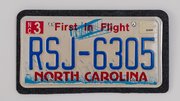News
Consumer activists protest at German RFID test site
February 29, 2004
RHEINBERG, Germany -- Activists this past weekend staged a protest outside the Metro Extra Future Store, a test site for RFID tracking and other technologies. Their concern is privacy.
The activists found radio frequency identification chips in the store's customer loyalty cards, as well as embedded in products for sale, including goods from IBM, Gillette and Procter & Gamble, according to an article on p2pnet.net.
"Metro failed to notify customers that they were being tracked," a customer said in the story. Metro told activists the chips worked only while customers were inside the store, but activists discovered that a kiosk used to deactivate the chips didn't completely disable the tags.
Public outcry and the impending protest over the privacy violation at Metro forced the company to cancel its use of RFID tags in loyalty cards, according to the article.
Metro AG, the store's parent company and the world's fifth largest retailer, has more than 2,000 stores, including supermarkets and electronics stores in 28 countries.
Metro is not the first company to face controversy over the use of RFID tags, the article said. Italian clothing manufacturer Benetton Group ran into trouble last year when it announced plans to tag its clothing labels with RFID chips. The company shelved the plan after consumers threatened a boycott.
 ChatGPT
ChatGPT Grok
Grok Perplexity
Perplexity Claude
Claude










